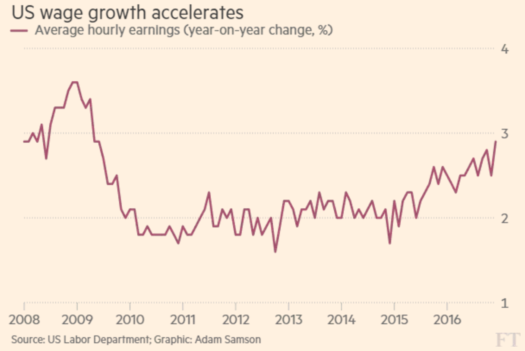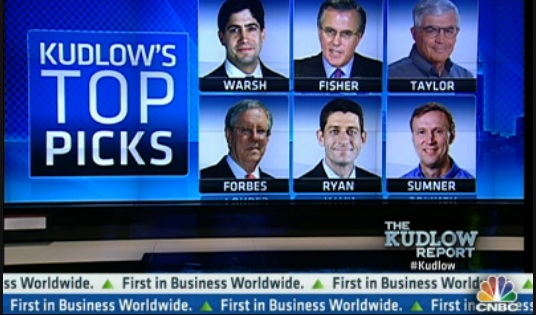Can anyone explain the proposed border tax/subsidy?
It seems like there are new questions being raised almost every day. Previously I asked whether the border tax/subsidy scheme would apply to service imports and exports. I never got a clear answer.
John Cochrane raises an even more important issue. The House proposal is not a stand alone tax and subsidy, but rather a revision of the corporate income tax. Here’s Cochrane:
The corporate tax reform question has gotten mixed up with the border adjustment issue. Several readers have asked for my opinion. I have to admit I’m confused. Feldstein likes it Summers hates it. If sold as a VAT, which is border adjusted it makes sense. But it’s not a VAT — wouldn’t apply to non-corporate business and, I hope dearly, not to direct imports and services. When I read some of the other blogs it seems like a complex mess ripe for exploitation by clever tax lawyers. Perhaps it’s not as bad as a uniform tariff (not much could be worse), but that’s weak praise.
Anyway, I’ve spent a day or so trying to figure it out, and can’t get to solid ground. That by itself seems an important weakness. I’m not the smartest person on earth, but I am a reasonably trained economist, and I have put a day into figuring this out. Tax reform ought to be really simple, and transparent to the American people, if for nothing else to put out the smoldering fire that people feel the system is rigged and fancy people with fancy lawyers are getting away with murder.
I buy stuff directly from overseas and have it shipped to my house. I’m not a corporation—will I have to pay a border tax? Do I have to report eBay packages to the Treasury? If John’s right that this only applies to corporations, it will create massive distortions. And if the House GOP can’t get someone like John Cochrane to understand their proposal then it deserves to fail.
Update: Ant1900 directed me to a appear by David Weisbach, which is outstanding. Looks at all of these issues in detail. Best tax paper I’ve ever read.
I also recommend Cochrane’s discussion of the corporate income tax, which is excellent. We both favor consumption taxes. Some of his commenters suggested that consumption taxes are regressive. That’s not true, they are proportional to consumption. Yes, they are regressive if compared to income, but since income is a meaningless concept, you want to compare them to consumption, which is what matters. The optimal tax system is something like the following:
1. Start with Pigovian taxes on negative externalities (such as a carbon tax), which produce a deadweight gain.
2. Add a small land tax. The rate should be by area, not value, with different rates for each zip code, depending on average property value by zip code.
3. There should be a 25% VAT, with an exemption for education and training classes. That levels the playing field between human and physical capital formation.
So far the tax is roughly proportional. But it should be strongly progressive for utilitarian reasons. That is achieved with the fourth leg of the system:
4. A steeply progressive wage tax, that goes from strongly negative rates for low wage jobs to strongly positive rates for high wage jobs (perhaps topping out at 75% for wage earners making more than $100,000,000/year.) Recall that in the long run a wage tax is identical to a VAT—they are both consumption taxes.
If needed, of if negative wage taxes are too administratively complex, the additional progressivity can come from a (modest) lump sum rebate to people over 18, so that no one below the poverty line has to pay any VAT.
In my proposed system, most people with wage jobs (like me!!) don’t have to fill out any 1040 forms. Self-employed and those with large capital income would still need to do tax forms, to make sure wage income is not being falsely classified as capital income. (I.e. “capital income” from companies that employ you should be viewed as wage income, unless proven otherwise.) I hope it goes without saying that there are no deductions for business lunches. That’s consumption.
That’s my federal tax system. Local governments like New York City currently have highly regressive property taxes, where the rich pay a far lower rate of tax on their property than the poor. That should be reversed, those $100 million penthouses should pay higher rates of property tax than Archie Bunker.



